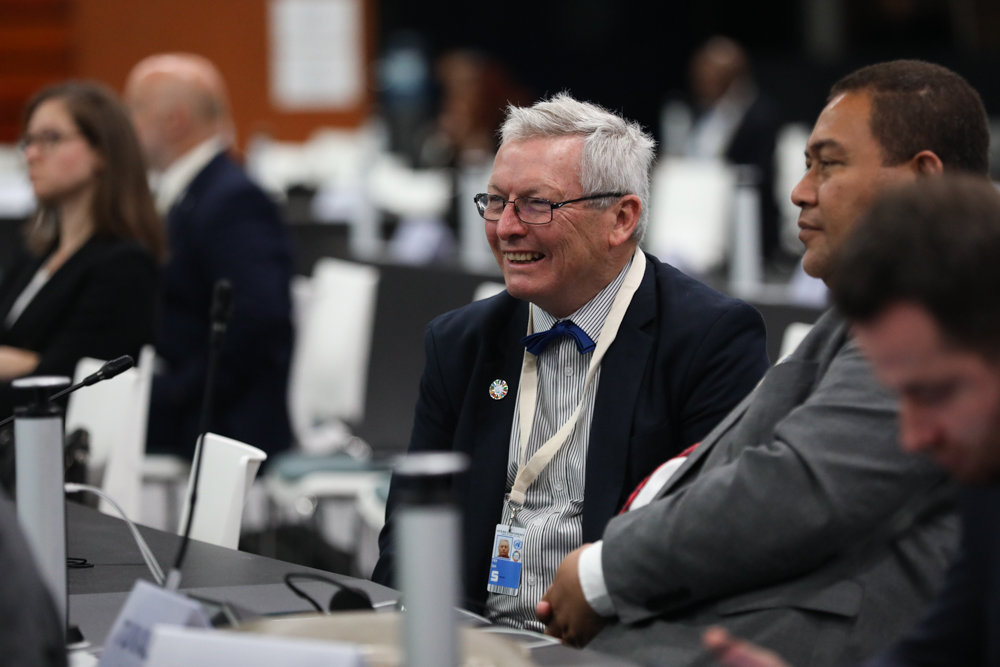The Environmental Negotiation Leaps of 2022
16 February 2023
Never in the history of humanity has the world faced so many environmental threats. Climate change is now called a climate emergency. We are losing biodiversity at an alarming rate. Our oceans are being choked with plastic, and we continue to produce toxic chemicals that are harmful to humans and wildlife. For millions of people, access to fresh water and sanitation is a growing challenge. The basic human rights enshrined in the Universal Declaration on Human Rights are at risk. As Article 3 of the Declaration states: “Everyone has the right to life, liberty and security of person.” Sadly, too many lives are being lost because of our profligate abuse of the natural environment.
Now more than ever, the international community must step up and ensure that the global environment is properly protected. The State of Global Environmental Governance produced by the International Institute for Sustainable Development provides an excellent overview of progress made in global environmental governance in the last 12 months. There are hopeful stories, and there are tragedies.
In 2022 we witnessed the launch of negotiations on a new treaty on plastics. This is a huge and long-anticipated step forward. Let us hope that the negotiations are not protracted and that the treaty can be implemented as soon as possible.
Following in the footsteps of the Intergovernmental Panel on Climate Change and the Intergovernmental Science-Policy Platform on Biodiversity and Ecosystem Services, the international community launched negotiations on a science-policy body for chemicals, waste, and pollution. This is critically important. For too long, concerns about toxic chemicals, waste, and pollution have taken a back seat to the more newsworthy issues of climate change and biodiversity. This new scientific body will hopefully put these chemical and pollution issues at the forefront of concern. Let us not forget Rachel Carson’s seminal 1962 book, The Silent Spring, which exposed the harmful effects of DDT. This book awakened the world to the fact that our faith in the chemical industry had to be seriously questioned. Carson faced considerable vilification and harassment by the agrochemical industry as a scientist and as a woman. Her fortitude and bravery in facing the power of the chemical industry cannot be overstated. Let us hope that the new science-policy body for chemicals, waste, and pollution will become the platform for many, many Rachel Carsons.

As the Special Rapporteur for the promotion and protection of human rights in the context of climate change, the decision by the UN General Assembly to adopt a resolution on the right to a clean, healthy, and sustainable environment was, for me, one of the key milestones of 2022. While the resolution is not legally binding, it showed a clear commitment by the international community that environmental protection and sustainable development cannot be separated from human rights. It told us that every human has a right to a clean, healthy, and sustainable environment. Undoubtedly, we will see many court cases seeking affirmation of that right.
Linking human rights and climate change was another pivotal moment in 2022 when parties to the UN Framework Convention on Climate Change agreed to establish a loss and damage fund. Millions of people are already suffering from the impacts of climate change. With the establishment of the fund, major polluters, both public and private, may be forced to pay reparations for the harm they are causing. Let us hope that this fund will be truly significant.
These are only a few of the issues that fall within the ambit of global environmental governance. There are many more to be found in this report. Let me conclude by congratulating all the writers who put together this report. Let me also congratulate all the writers, editors, and photographers that work so hard to bring us the Earth Negotiations Bulletin. Their work is the foundation for this report. Without the concise and authoritative reporting by ENB, we would be a lot intellectually poorer and less well-informed. I, for one, am an avid reader of the ENB, and I recommend everyone else to do the same.
— Ian Fry, Special Rapporteur on the Promotion and Protection of Human Rights in the context of Climate Change